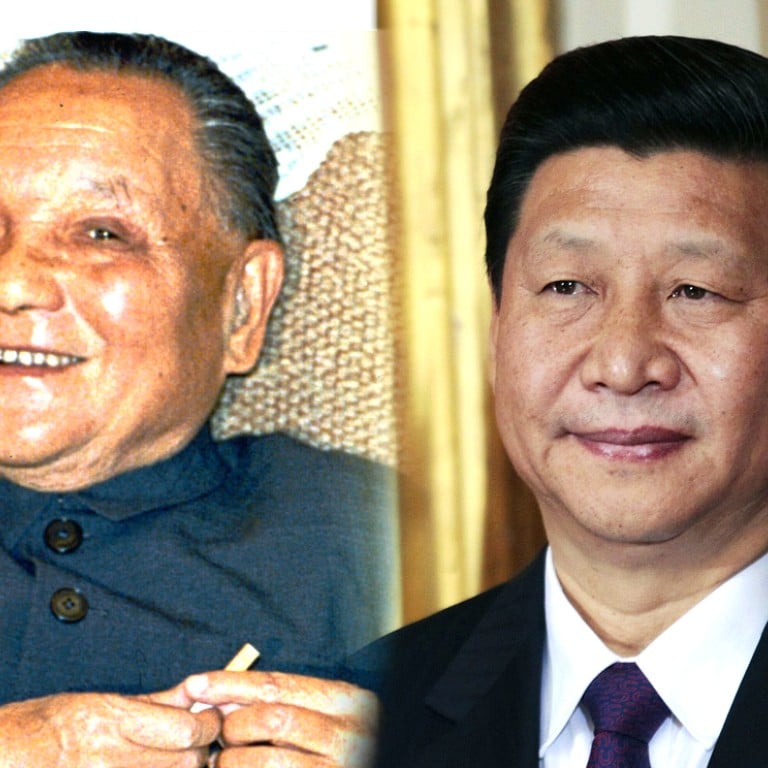
Another mainland editorial draws Xi Jinping-Deng Xiaoping parallels
President Xi Jinping identifies with the political legacy of reformist leader Deng Xiaoping, according to an editorial on Xi's leadership published online by the overseas edition of the official People's Daily.
President Xi Jinping identifies with the political legacy of reformist leader Deng Xiaoping, according to an editorial on Xi's leadership published online by the overseas edition of the official .
It is the second commentary published online by the party's mouthpiece to compare Xi's leadership to that of the late paramount leader ahead of the 110th anniversary of Deng's birth on August 22.
Deng opened the country to the outside world in 1978 and pursued economic reforms, but was also in charge during the bloody crackdown on the 1989 democracy movement. The commentary said Xi regarded Deng as his role model and identified with his reform policies.
The editorial restated the legitimacy of Xi's fight against corruption and bureaucracy, saying the moves signalled his resolve to sweep away obstacles in the path of deepening reforms on the mainland.
"The problems left by reforms can only be solved by further reforms," the commentary said.
Xi also agreed with Deng's defence of the legacy of Mao Zedong , the commentary said, citing Xi's statement on the 120th anniversary of Mao's birth that the former leader was a great revolutionary who made mistakes in his later years.
Another commentary on July 31 summarised 10 of Deng's famous quotes that Xi has recited in his speeches. The article also highlighted former US ambassador Jon Huntsman's comment that Xi "has emerged as the most transformational Chinese leader since Deng Xiaoping".
Commentators said the comparison showed that Xi sought to project a reformist image like Deng to both the public and party elites to enhance his authority.
"It has been a tradition in Chinese politics that a new leader needs to position himself under the wing of a great state leader like Deng to legitimise the transition of political power," Hong Kong-based political commentator Johnny Lau Yui-siu said.
He added that the authorities also wanted to highlight the resistance Xi faced in his reform path.
Steve Tsang, director of the China Policy Institute at the University of Nottingham in Britain, said the comparison implied Xi's ambition to be remembered like Deng, not his predecessors.
"Unlike those who tried to hold the ring and sustain the course, Deng was a leader who dared to take the risk and change the course," Tsang said.
He added that Xi had also taken Deng's approach to political reforms, maintaining that the country needed changes in governance, but not progressive democracy.
